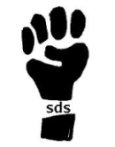How to despoil paradise
 Well, well, well. What a difference a few decades makes.
Well, well, well. What a difference a few decades makes. I first read Edgar Rice Burroughs’ Pellucidar series when I was probably, oh, in the seventh or eighth grade. The books are filled with thrilling adventures, neat dinosaurs, cavemen, and at least one beautiful woman (aptly named Dian the Beautiful). And that’s all I got out of those stories way back then. Two years ago, I decided to revisit the books and quickly plowed through the first, At the Earth’s Core (1913). I enjoyed the hell out of it. This week, I finally picked up the second novel in the series, Pellucidar (1915). Like I did with the first novel, and like I do with most ERB books, I had a ball. But at the same time, I couldn’t help but see with much more mature eyes a very obvious early 20th century strain of empire-building beyond David Innes’ derring-do. Sure, the novel is centrally about Innes’ return to the earth’s core to find his beloved Dian. But along the way, despite singing high praises for the simpler, more primitive life found in Pellucidar, Burroughs’ hero spends a good part of his time dragging the conveniences and weaponry of the “civilized” outer world into his paradise. And in the course of doing so, he builds himself quite a kingdom. Get a load of this:
“We have just laws and only a few of them. Our people are happy because they are always working at something which they enjoy. There is no money, nor is any money value placed upon any commodity. Perry and I were as one in resolving that the root of all evil should not be introduced into Pellucidar while we lived.
“A man may exchange that which he produces for something which he desires that another has produced; but he cannot dispose of the thing he thus acquires. In other words, a commodity ceases to have pecuniary value the instant that it passes out of the hands of its producer. All excess reverts to government; and, as this represents the production of the people as a government, government may dispose of it to other peoples in exchange for that which they produce. Thus we are establishing a trade between kingdoms, the profits from which go to the betterment of the people — to building factories for the manufacture of agricultural implements, and machinery for the various trades we are gradually teaching the people. …
“We are very happy, Dian and I, and I would not return to the outer world for all the riches of all its princes. I am content here. Even without my imperial powers and honors I should be content…”
Spoken like a true despot.
Labels: books, edgar rice burroughs, leftlibertarian, scifi













4 Comments:
Well, that blows everything about the origin and benefits of money I was trying to explain to my five-year old daughter this afternoon right out of the water. She started with a question about why some colorful paper umbrellas were for sale at the Chinese New Year celebration here, and we ended up talking about the benefits of exchanging items for mutual benefit, then being able to use something like money to store your wants until a later time. Money as the root of all evil? Ha!
I had read all the Pellucidar novels as a teenager, but gave no thought to ERB's economics. What bosh.
Those ideas don't sound like anything ERB advocated either in real life or in his other novels, so I wonder whether he was just playing with ideas rather than actually putting forward serious doctrine.
I read the Pellucidar books before I read more standard "libertarian" books. However, I did reread them many times after too, though not recently (but I bought a new hardcover not long ago intending to).
I recall Innes' comments on money and the rest. They usually made me squirm. (BTW, I should have an answer for your tag soon. I've been swamped lately.)
The only monetary system ERB cared about was "eleven cents a word."
:)
Post a Comment
<< Home